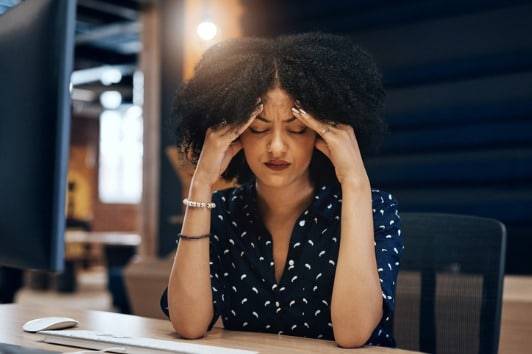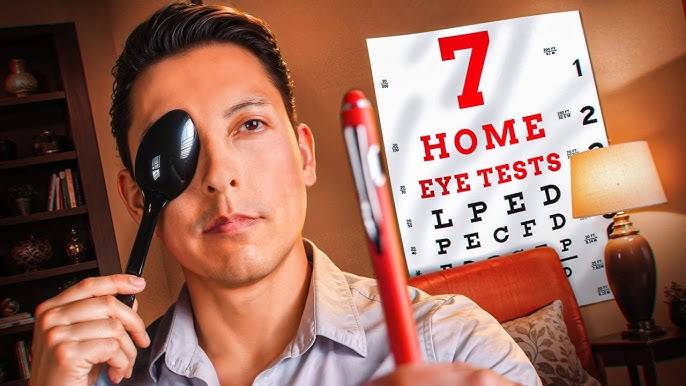Unfortunately, there's no sure way to know whether or not you'll be affected by migraines during your lifetime. However, some factors, such as smoking or stress, can potentially increase one's likelihood of experiencing the neurological disease, reports the Cleveland Clinic. As a genetic disorder, however, our genes can be one of the biggest contributing risk factors. So much so, that up to 80% of people who experience migraines share the experience with a first-degree family member.
While experts can't pinpoint the exact cause of migraine headaches, FamilyDoctor.org suggests that fluctuating serotonin levels in the body may play a role. The rise and fall of serotonin in the body causes blood vessels to expand and contract. When expanding, experts state that the swelling might prompt pain associated with migraines.
Migraine symptoms can vary to include throbbing, tenderness, nausea, lightheadedness, light sensitivity, tiredness, confusion, and more. For some people, however, symptoms don't just last for the duration of the headache, but rather follow them into the next day — a condition otherwise known as a migraine hangover.
Although migraine hangovers and alcohol-related hangovers may share some unpleasant symptom overlap, a migraine hangover has nothing to do with whether you partook in a night of drinking.
In cases of a migraine hangover, symptoms of tiredness, weakness, light sensitivity, nausea, difficulty concentrating, and more can persist for hours or into the next day following a migraine attack. However, science tells us that migraine hangovers and migraine attacks aren't two separate occurrences, but rather two different phases of the same migraine.
As soon as you pick up on signs indicating you've entered the prodrome phase of a migraine, WebMD emphasizes the importance of drinking plenty of liquids and doing some gentle stretching, if able.
In the throes of a migraine attack or postdrome, it is advisable to stay hydrated and getting plenty of rest to help ease symptoms. For some, caffeine can help alleviate migraine pain. If that's the case for you, then drinking a cup of tea may be a helpful treatment method. Alternatively, try utilizing a cold compress, heating pad, or massage.
Experts also suggest consulting with your doctor to discuss possible migraine treatment medications that may be right for you. By taking measures to prevent a migraine attack from striking in the first place, and treating a migraine as soon as it begins, you can help stave off a nasty migraine hangover.




